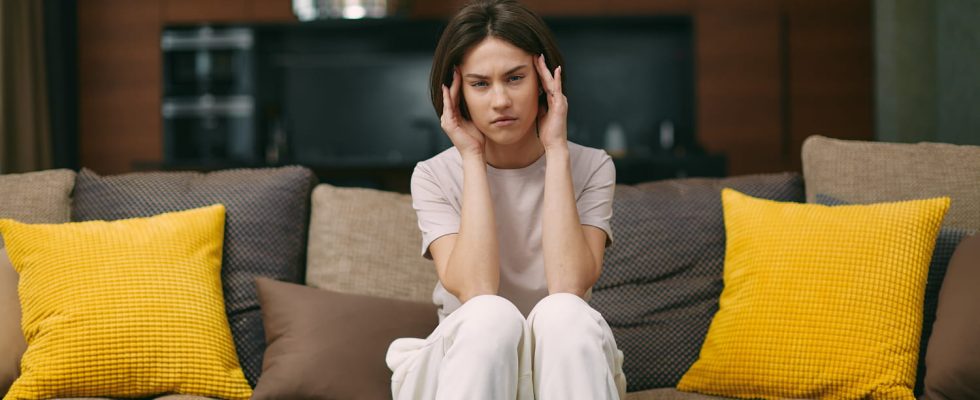The isolation of people positive for Covid-19 has not been in effect since February 1, 2023. The government then gave its new instructions.
Given the slowdown in the Covid epidemic in France in 2023, the government has decided, in accordance with the recommendations of the High Council of Public Health, to eliminate the systematic isolation of positive people at Covid. Concretely, since February 1, 2023, people who test positive for Covid-19 are no longer required to isolate themselves, announced the Ministry of Health in a January 28 statement. Self-isolation now remains a possibility for those who want it. “As with any acute respiratory infection disease, it remains strongly recommended that people who test positive for Covid-19, as well as people who have been exposed to a contagious person and are likely to develop the disease, respect barrier gesturesof get tested and D’avoid contact with fragile people“, can we read on the press release. In addition, the realization of a screening test on the second day of notification of contact status for asymptomatic contact persons no longer required.
What are the isolation rules in 2023?
Since February 1, 2023, thesystematic isolation for people who have tested positive for Covid-19 no longer required. In other words, there is no longer any need to isolate yourself if you are positive for Covid. However, you can decide to do it. It remains strongly recommended that people who test positive for Covid-19, as well as people who have been exposed to a contagious person and are likely to develop the disease, to:
- respect barrier gestures,
- get tested
- avoid contact with fragile people.
How long to isolate yourself if you still want to do it?
Isolation is no longer compulsory but remains possible if you do not want to take the slightest risk:
► With a complete vaccination schedule (2 doses + 1 booster): 7 days (full) after the date of the onset of signs or the date of the collection of the positive test. You can come out of isolation after 5 days if you have not had any clinical signs of infection for 2 days.
► With an incomplete vaccination schedule or for non-vaccinated persons: 10 days (full) after the date of the onset of signs or the date of the collection of the positive test. You can come out of isolation after 7 days if you have not had any clinical signs of infection for 2 days.
No. Since March 21, 2022and in accordance with the opinion of the High Council for Public Health (HCSP) of February 11, 2022, contact persons at risk (contact cases), regardless of their vaccination status, are no longer required to respect isolationnoted a decree of the General Directorate of Health of March 15, 2022. Since February 1, 2023, they are also no longer required to carry out a screening test on the second day of notification of contact status for asymptomatic contact persons.
How to obtain an attestation (or certificate) of isolation?
Positive cases who want to self-isolate and cannot telecommute can benefit froma certificate of isolation or “declaration of home care” if they need a work stoppage. To simplify their procedures, the Health Insurance has opened since October 3, 2020 the teleservice declare.ameli.fr. Before paying your daily allowances, Health Insurance will verify that you are identified as a positive case.
What precautions should be taken during isolation?
- Stay, if possible, in a separate room from loved ones, with the door closed. It is important to sleep and eat meals alone, in your room.
- Avoid contact with other people in the house, apartment or place of reception, do not touch or kiss them
- Wear a mask in the presence of a person, respect a distance of more than 2 meters and limit discussions to 15 minutes
- Avoid all contact with fragile people, i.e. people over 65 or with chronic diseases (hypertension, diabetes, heart disease, etc.), people with severe obesity and pregnant women in the 3rd trimester of pregnancy
- Use, if possible, a separate bathroom and toilet, which you do not share with other people in your home. If you have no choice, the rooms you share with others should be cleaned regularly. People who use them wash their hands before and after use;
- Do not share everyday objects: towel, soap, telephone…
Sources:
– Fight against the Covid-19 epidemic: entry into force of several legislative changes from January 31, 2023
– Evolution of the measures to fight against covid from March 14, 2022
– Infection or contact case: the new isolation rules against Covid-19 from January 3, 2022
– Covid-19: vulnerable people must apply for a new isolation certificate. Ameli.fr 09/15/2021
– Vulnerable people: the new list of criteria since September 9. September 9, 2021. Service-Public.fr
– What to do in the event of a case of infection with SARS-CoV-2 (COVID-19) 07/22/2021. French Public Health.
– Coronavirus SARS-CoV-2: clinical criteria for release from isolation of infected patients, Haut Conseil de la Santé Publique
– Coronavirus COVID-19: health information and recommendations, ARS Occitanie and Île-de-France
– National union of young general practitioners.
– Covid-19 patient sheet, Public Health France.
– File: Isolation, principles and rules to be respected on the Ameli.fr site
– Contact person form, government.fr
